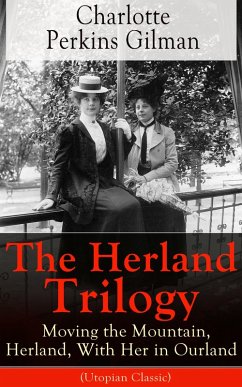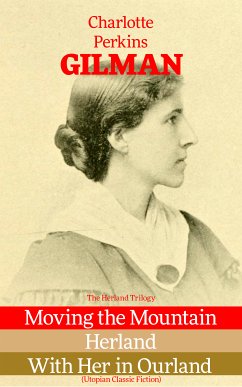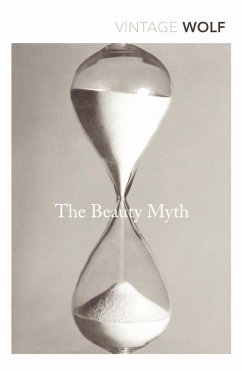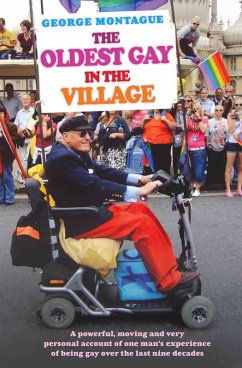
Moving the Mountain, Herland & With Her in Ourland (eBook, ePUB)
Versandkostenfrei!
Sofort per Download lieferbar
1,99 €
inkl. MwSt.
Weitere Ausgaben:

PAYBACK Punkte
0 °P sammeln!
In "Moving the Mountain, Herland & With Her in Ourland," Charlotte Perkins Gilman weaves a compelling narrative that critiques early 20th-century society while envisioning a future founded on feminist ideals. Combining elements of utopian fiction with social commentary, Gilman's trilogy explores the consequences of gender inequality and the potential for a harmonious society devoid of patriarchal constraints. Through her eloquent prose and vivid imagery, she invites readers to engage with her innovative concepts of matriarchy and cooperative living, drawing from contemporary reform movements a...
In "Moving the Mountain, Herland & With Her in Ourland," Charlotte Perkins Gilman weaves a compelling narrative that critiques early 20th-century society while envisioning a future founded on feminist ideals. Combining elements of utopian fiction with social commentary, Gilman's trilogy explores the consequences of gender inequality and the potential for a harmonious society devoid of patriarchal constraints. Through her eloquent prose and vivid imagery, she invites readers to engage with her innovative concepts of matriarchy and cooperative living, drawing from contemporary reform movements and the suffrage quest of her time. Charlotte Perkins Gilman, a prominent feminist writer and social reformer, emerged from a background rich in progressive thought. Her own experiences, including a struggle against the confines of traditional marriage and her subsequent mental health challenges, fueled her desire to advocate for women's autonomy and social responsibility. "Moving the Mountain, Herland & With Her in Ourland" reflects her keen intellectual engagement with the sociopolitical issues of her era and her commitment to envisioning a better world for women. This trilogy is a must-read for those interested in feminist literature, social utopias, and historical perspectives on gender roles. Gilman's thought-provoking narratives encourage profound reflection on societal norms and invite readers to consider the transformative power of collective female agency.
Dieser Download kann aus rechtlichen Gründen nur mit Rechnungsadresse in A, B, BG, CY, CZ, D, DK, EW, E, FIN, F, GR, H, IRL, I, LT, L, LR, M, NL, PL, P, R, S, SLO, SK ausgeliefert werden.













